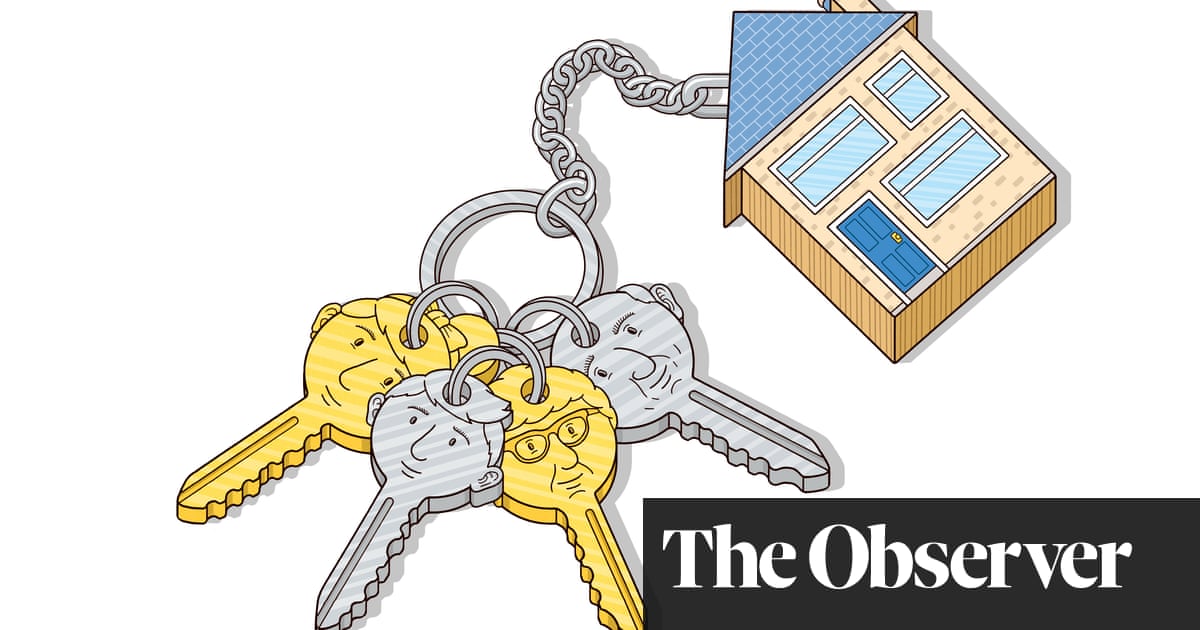
What springs to mind when you hear the word cooperation? It increasingly feels like bland corporate jargon, evoking images of firm handshakes and cheerful teamwork. Typing it into Google Images produces a reel of people doing increasingly bizarre things with their hands. But cooperation is much more than a workplace platitude: it is sewn into the fabric of our lives, from the most mundane of activities, such as the morning commute, to magnificent achievements such as sending rockets into space. Cooperation is our species’ superpower, the reason that humans managed not just to survive but to thrive in almost every habitat on Earth.
We often talk about cooperation in glowing terms, associating it with ideas of virtue and morality. And, to some extent, this perspective is justified. Cooperative individuals are more likely to care for others, to display empathy for those in distress and to act to alleviate their suffering. It’s why people are willing to donate their money, their time and even their blood to help those in need.
But viewing cooperation solely as a force for good betrays a fundamental misunderstanding of how evolution works. For a gene associated with any behavioural trait to come under positive selection, it must yield some advantage to its bearer. Cooperation is favoured, therefore, when it offers a way to get ahead. Sometimes, this materialises through the promise of return favours; at other times because cooperative individuals bestow benefits upon their relatives (with whom they share copies of the same genes). For humans, cooperation also offers a route to higher status and prestige. High status individuals experience several advantages, enjoying better health, higher reproductive success and increased lifespan.
And so we are forced to confront a possibly uncomfortable truth: cooperation is, at heart, a means by which entities – be they genes, cells or individuals – improve their own position in the world. It’s important to note that this doesn’t imply that all cooperation is strategic and calculated. But cooperation is essentially a form of competition and, therefore, frequently has victims.
To illustrate this, a story may help. According to one report, each night as the planes land at Reagan airport in Washington DC, the throng of Uber and Lyft drivers waiting outside collectively switch off the app, marking themselves as unavailable. Then they wait. As passengers exit the terminal, demand adjusts to supply and the price creeps up: $12 … $15 … $19. Eventually, the ringleader gives the signal and everyone switches the app back on, accepting fares from passengers who will pay a little bit extra to be taken to their destination.
We don’t want to judge the drivers too harshly in this situation: like many others in the gig economy, they work long hours for low pay and frequently struggle to make ends meet. But this example offers a neat demonstration of how cooperation between some individuals (in this case, the drivers) can generate costs to others. To generate surge pricing, the drivers need to turn off their own app – and risk missing out on a fare altogether – while trusting that the others will do the same. As one driver put it, “we work as a family, like a team together”. Collaboration is crucial for this enterprise to succeed.
By viewing cooperation in these terms, we can recast phenomena such as corruption, bribery and nepotism as forms of hyper-local cooperation that generate benefits within a small clique, but result in societal costs. For example, a 2021 report by Transparency International found that almost £4bn in government spending during the Covid-19 pandemic was tied to contracts containing “red flag” indicators of corruption. The report claims that 24 of these (worth an estimated £1.6bn) went to those with known political connections to the Conservative government. Preferentially awarding contracts to people we know is, on one level, cooperative. But these activities strike us as nefarious because most of us are excluded from the benefits – while simultaneously being forced to absorb the costs.
When we learn to recognise it, we can see that pathological cooperation is widespread in nature. Chimpanzee males join forces to attack – and often kill – their rivals. Yellowjacket worker wasps coordinate to kill their own mother, the queen. Due to a quirk of wasp genetics, sisters are more related to their nephews than to their brothers. They therefore prefer any males in the colony to be produced by their sisters rather than by the queen. The production of males happens towards the end of the breeding season and it is at this point that the younger females unite to dispatch the matriarch. Working together to get ahead is a recurring theme in the history of life on Earth: cooperation and competition are two sides of the same coin.
Whether we view cooperation as a force for good therefore depends on the perspective we adopt: what looks like cooperation through one lens will often be felt as competition through another. A corollary of this – and a fact that we urgently need to acknowledge if we want our species to have a future on this planet – is that cooperation on a global or societal scale is infinitely vulnerable to the corrosive effects of more localised cooperation. Oil and gas giants, for example, work together via powerful trade associations and spend hundreds of millions of dollars annually on lobbying aimed at watering down or blocking climate crisis policies. Cooperation of this sort wields the potential for destruction on a planetary scale.
The global human population today stands at nearly 8 billion people, an extraordinary achievement for a species that is no more than, as Charles Darwin put it, an “acknowledged descendant of an ape”. For this, we can thank our social instinct – the drive to help our close family, friends and loved ones. Cooperation has played a huge role in our success, but our enormous presence and impact on the planet now requires us to go beyond instinct and to cooperate in different, less natural ways. It is easy – most of the time – to cooperate locally, with our relatives or within established relationships, but it is far harder to put our faith in people we don’t know (and may never meet) and to invest in actions that generate global benefits.
There is an almost fairytale quality to the role of cooperation in the human story. If used well it will deliver riches, but in the wrong hands, or used in the wrong ways, it will bring ruin. Cooperation has carried us this far in our journey, but if we don’t find ways to be better at it – to scale it to the global problems we face – we risk becoming the victims of our own success. Whether this fairytale has a happy ending is up to us.
Nichola Raihani is a professor of evolution and behaviour at UCL and the author of The Social Instinct: What Nature Can Teach Us About Working Together (Vintage).
Further Reading
Governing the Commons by Elinor Ostrom (Cambridge, £14.99)
The Weirdest People in the World by Joseph Henrich (Penguin, £16.99)
The Gene’s-Eye View of Evolution by J Arvid Ågren (Oxford, £20)












